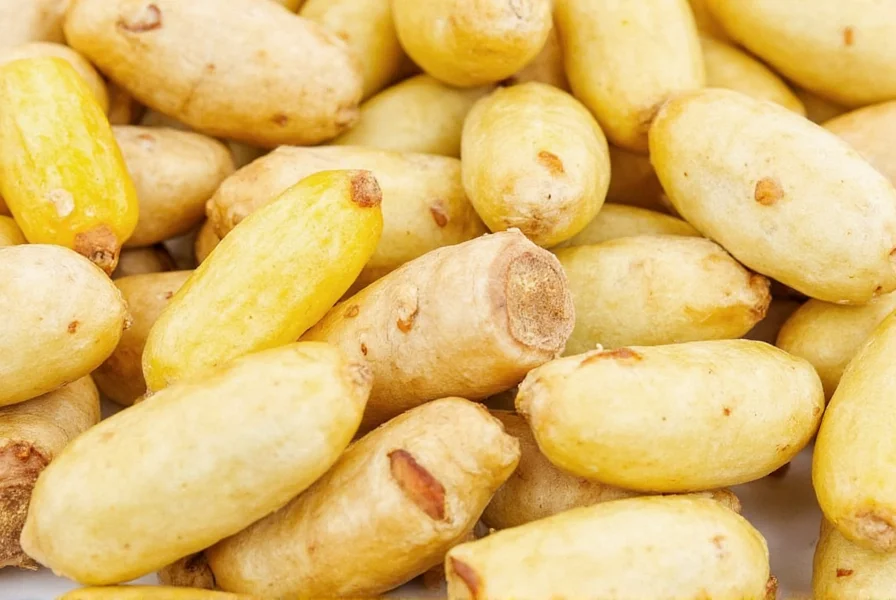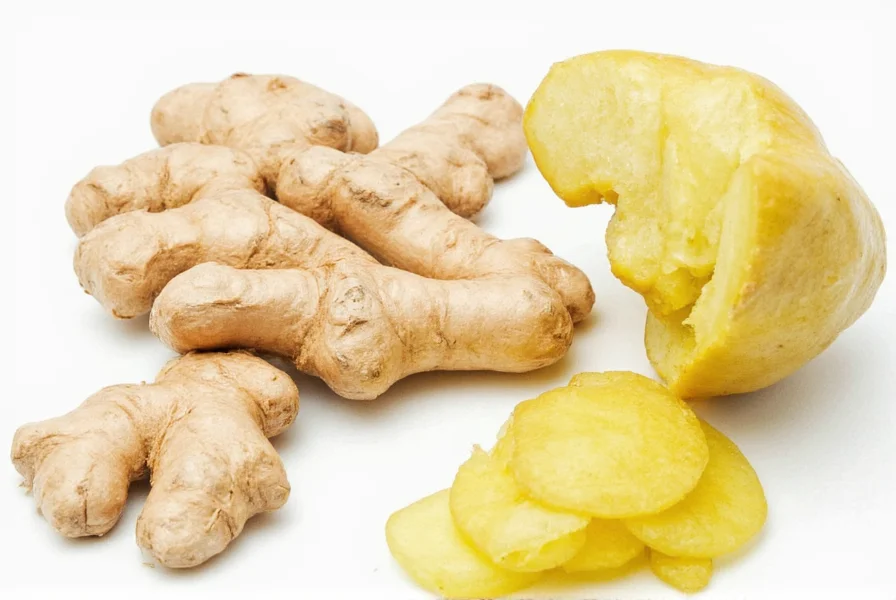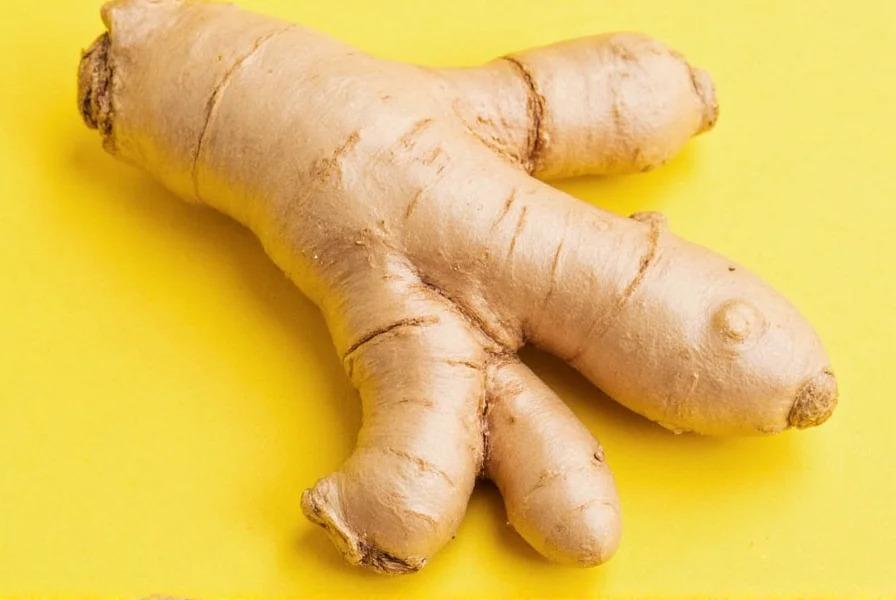Based on current scientific evidence, ginger shows potential benefits for diabetes management but should not replace standard medical treatment. Multiple clinical studies indicate that ginger supplementation (typically 1.6-3 grams daily) may help lower fasting blood sugar levels, improve insulin sensitivity, and reduce markers of oxidative stress in people with type 2 diabetes. However, effects vary between individuals, and ginger should be used as a complementary approach alongside prescribed medications and lifestyle changes, not as a standalone treatment.
For individuals managing diabetes, understanding natural complementary approaches is crucial. Ginger (Zingiber officinale), a common spice with a long history in traditional medicine, has gained scientific attention for its potential role in blood sugar regulation. This article examines what current research reveals about ginger's effects on diabetes markers, appropriate usage considerations, and important safety information for people with diabetes.
Understanding Ginger's Active Components
Ginger contains over 100 bioactive compounds, with gingerols and shogaols being the most studied for their potential health benefits. These compounds demonstrate antioxidant, anti-inflammatory, and potential hypoglycemic properties that may contribute to improved metabolic health. Unlike many herbal supplements, ginger has been subjected to multiple clinical trials specifically examining its effects on diabetes parameters.
Scientific Evidence: What Research Shows
Several randomized controlled trials have investigated ginger's effects on diabetes markers. A 2020 meta-analysis published in Nutrition Reviews examined 11 clinical trials involving 636 participants with type 2 diabetes. The analysis found that ginger supplementation significantly reduced fasting blood glucose, HbA1c, and insulin resistance compared to placebo groups.
| Study | Participants | Ginger Dosage | Key Findings |
|---|---|---|---|
| Azimi et al. (2014) | 88 with type 2 diabetes | 2g/day for 2 months | 10.5% reduction in fasting plasma glucose |
| Mahluji et al. (2013) | 41 with type 2 diabetes | 1.6g/day for 12 weeks | Significant improvement in insulin sensitivity |
| Zhang et al. (2021) | Meta-analysis of 11 trials | 1.6-3g/day (varied) | Reduced HbA1c by 0.58% and fasting glucose by 14.6 mg/dL |
Researchers believe ginger may improve diabetes management through several mechanisms: enhancing insulin secretion from pancreatic beta cells, increasing glucose uptake by muscle cells, and reducing inflammation that contributes to insulin resistance. Animal studies also suggest ginger may protect against diabetic complications like neuropathy and kidney damage, though human evidence for these specific benefits remains limited.
Practical Considerations for Diabetes Management
While research is promising, several important considerations exist for people with diabetes interested in using ginger:
- Dosage matters: Most studies showing benefits used 1.6-3 grams of ginger daily, typically in powdered supplement form. This equals approximately 1-2 teaspoons of fresh ginger or 1-2 cups of strong ginger tea.
- Form differences: Fresh ginger, dried powder, and extracts contain varying concentrations of active compounds. Supplements provide more consistent dosing than culinary use.
- Timing considerations: Some evidence suggests taking ginger with meals may enhance its blood sugar effects.
- Gradual introduction: Start with smaller amounts to assess tolerance before increasing to research-backed doses.
Can ginger lower blood sugar levels too much when combined with diabetes medications? This is a valid concern. Ginger may enhance the effects of insulin and certain oral diabetes medications like sulfonylureas, potentially increasing hypoglycemia risk. People taking these medications should monitor blood sugar more closely when adding significant ginger to their regimen.
Safety Profile and Potential Interactions
Ginger is generally recognized as safe by the FDA when consumed in typical food amounts. At the higher doses used in diabetes studies, some people experience mild side effects including heartburn, stomach upset, or mouth irritation. More importantly for diabetes management, ginger may interact with:
- Anticoagulant medications (like warfarin) due to ginger's mild blood-thinning properties
- Antihypertensive drugs, as ginger may lower blood pressure
- Diabetes medications, potentially enhancing their blood sugar-lowering effects
Does ginger interact with diabetes medications? Research suggests possible interactions that warrant caution. A 2019 study in Phytotherapy Research documented cases where ginger supplementation required medication dose adjustments in some patients. This highlights why medical supervision is essential when combining ginger with prescription diabetes treatments.
Integrating Ginger into a Diabetes Management Plan
For those interested in trying ginger as a complementary approach to diabetes management, consider these evidence-based recommendations:
- Consult your healthcare provider before starting ginger supplements, especially if taking diabetes medications
- Start with culinary amounts (1/2 teaspoon grated ginger in cooking or tea) before considering supplements
- If using supplements, choose standardized products providing 1.6-3g daily as used in research
- Monitor blood glucose levels more frequently during the first few weeks of regular ginger use
- Continue all prescribed diabetes medications unless your doctor advises otherwise
Is fresh ginger good for diabetics? Both fresh and dried forms show potential benefits, but fresh ginger contains higher levels of gingerols while dried/processed forms have more shogaols. Some research suggests shogaols may have stronger hypoglycemic effects, but both forms appear beneficial. The key is consistent, moderate consumption rather than the specific form.
Limitations of Current Research
While promising, existing research on ginger and diabetes has limitations. Most studies have been relatively short-term (8-16 weeks), involved small sample sizes, and focused primarily on type 2 diabetes. Research on ginger's effects for type 1 diabetes remains extremely limited. Additionally, optimal dosing, long-term safety, and effects on diabetes complications require further investigation through larger, longer-term clinical trials.
Ginger supplements for type 2 diabetes show potential but shouldn't be viewed as a replacement for evidence-based treatments. The American Diabetes Association emphasizes that while certain spices and supplements may offer complementary benefits, they should never replace proven diabetes management strategies including medication, diet, and exercise.

When to Consult Your Healthcare Provider
Before adding ginger supplements to your diabetes management routine, consult your healthcare provider if you:
- Take insulin or sulfonylurea medications
- Have a history of low blood sugar episodes
- Are scheduled for surgery within the next two weeks
- Have gallstone disease
- Are pregnant or breastfeeding
Your healthcare provider can help determine if ginger is appropriate for your specific situation and advise on monitoring parameters. They may recommend starting with smaller amounts of ginger and adjusting your diabetes medication doses if necessary.

Conclusion
Current evidence suggests ginger may offer modest benefits for blood sugar control in people with type 2 diabetes when used alongside conventional treatments. Scientific studies on ginger and diabetes indicate potential improvements in fasting glucose, HbA1c, and insulin sensitivity at doses of 1.6-3 grams daily. However, ginger should be viewed as a complementary approach rather than a primary treatment. How much ginger should a diabetic take? Most research supports 1.6-3 grams daily, but individual needs vary. Always consult your healthcare provider before making significant changes to your diabetes management plan, especially when considering supplements that may interact with medications.
Can ginger lower blood sugar levels significantly?
Research shows ginger may modestly lower blood sugar levels, with studies reporting approximately 10-15% reductions in fasting glucose. However, these effects are not sufficient to replace diabetes medications, and individual responses vary significantly.
How much ginger should a diabetic take daily?
Most clinical studies showing benefits used 1.6-3 grams of ginger daily, typically in powdered supplement form. This equals about 1-2 teaspoons of fresh grated ginger. Consult your healthcare provider for personalized recommendations based on your specific health situation.
Does ginger interact with metformin?
No significant direct interactions between ginger and metformin have been documented in research. However, since both may affect blood sugar levels, monitoring is recommended when combining them. Always consult your healthcare provider before adding supplements to your regimen.
Is ginger tea beneficial for diabetes management?
Ginger tea may offer some benefits, but the concentration of active compounds is typically lower than in supplements used in research studies. To achieve similar effects to clinical trials, you would need to drink multiple strong cups daily. Freshly grated ginger provides more active compounds than pre-packaged tea bags.
Can ginger reverse type 2 diabetes?
No, ginger cannot reverse type 2 diabetes. While research shows it may help improve blood sugar control as part of a comprehensive management plan, diabetes reversal requires significant, sustained lifestyle changes and sometimes medical intervention. Ginger should be viewed as a potential complementary approach, not a cure.











 浙公网安备
33010002000092号
浙公网安备
33010002000092号 浙B2-20120091-4
浙B2-20120091-4